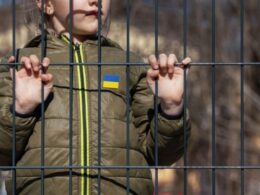37% of Ukrainian children currently experience elevated or high stress levels, marking a 10% increase compared to last year, according to a survey by the Rating sociological group.
The sharpest rise was recorded among girls aged 10-13, with 40% of respondents in this category showing increased stress over the past year.
The study reveals a concerning pattern: in one out of five cases, children's dominant emotions mirror those of their parents. "The most common shared feeling is anxiety – children absorb it from their parents, which amplifies their stress," the researchers state.
Rising stress among teenagers often comes with negative emotions, with every tenth adolescent experiencing disappointment. In contrast, children whose stress levels decreased over the year more frequently report feelings of joy, calm, and interest, while experiencing less anxiety, sadness, and disappointment.
Building trust reduces stress by half
The survey data shows that approximately 77% of children who frequently discuss their feelings and experiences with parents and family members demonstrate good stress resilience. Their stress levels are twice as low as those who communicate less.
Among children who rarely talk to their parents about their worries, only about half show good stress resistance.
Hobbies and physical activity as stress buffers
Some 68% of children who regularly engage in hobbies have low or moderate stress levels. Among peers who dedicate little time to their favorite activities, fewer than half fall into this category.
Shared family hobbies prove particularly beneficial – 57% of children who pursue their interests together with parents are well-adapted to stress.
Nearly 60% of children who regularly participate in physical activities show high stress adaptability. Among those who don't exercise or do so rarely, only 38% demonstrate similar resilience.
However, children whose sole or primary hobby involves screen time and video games show low stress adaptability, the research indicates.
The study surveyed over 1,500 children aged 10-18 and their parents between 3-7 October using telephone interviews and online questionnaires, reports the Rating group.
Read also
-
NBC: Russia shows no willingness to end war in Ukraine as peace efforts stall, US intelligence assesses
-
Russia tests 100-megaton Poseidon torpedo capable of radioactive tsunami as pressure on Trump over Ukraine escalates
-
Lithuania says it will never recognize Crimea, Donetsk, Luhansk’s occupation, pledges 0.25% of GDP to Ukraine’s military




